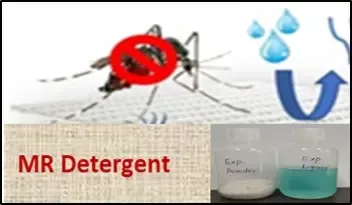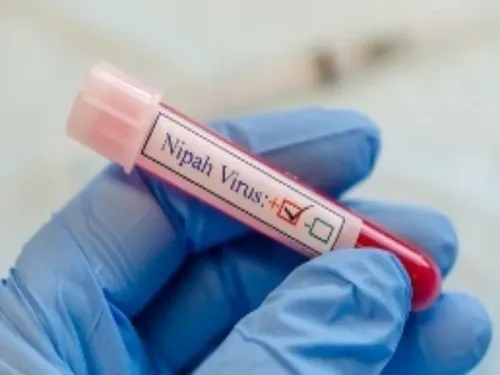Can IIT Delhi's Innovative Mosquito-Repellent Detergents Combat Malaria and Dengue?

Synopsis
Key Takeaways
- Innovative mosquito-repellent detergent developed by IIT Delhi.
- Products are available in powder and liquid forms.
- Proven to reduce mosquito landings on treated fabrics.
- The active components are regenerated with each wash.
- Commercialization is anticipated shortly.
New Delhi, Nov 27 (NationPress) In light of the increasing prevalence of mosquito-borne diseases such as malaria, dengue, and chikungunya, researchers at the Indian Institute of Technology (IIT) Delhi announced on Thursday the creation of a groundbreaking mosquito-repellent detergent.
Currently, the protective options available against mosquitoes are liquids, coils, lotions, creams, roll-ons, sprays, and patches.
However, these products have limitations in effectively repelling mosquitoes. For example, topical formulations like creams and lotions can diminish in effectiveness over time, increasing the likelihood of mosquito bites and the diseases they carry.
The newly developed mosquito-repellent detergents come in both powder and liquid forms while maintaining comparable wash-care features, according to the researchers.
“We have created smart detergents aimed at safeguarding individuals from harmful mosquito-borne illnesses. These products have undergone tests in a commercial laboratory and have demonstrated efficacy in repelling mosquitoes,” stated Prof. Javed Nabibaksha Sheikh, from the Dept. of Textile and Fibre Engineering at IIT Delhi.
The evaluation process utilized a 'hand-in-cage' method, where volunteers placed their hands, covered with fabrics, into a box filled with starved mosquitoes.
The researchers assessed the number of mosquitoes landing on the fabric. Fabrics washed with our detergents showed a marked decrease in mosquito landings.
Given that a mosquito's proboscis can easily penetrate fabric, it is vital to prevent them from landing on textiles. Textiles washed with these smart detergents become less appealing to mosquitoes, thereby reducing the chances of bites.
“The active ingredients in the detergents interact with the fibers during the washing process, making them less attractive for mosquito landings. These components affect both the smell and taste receptors of mosquitoes,” Prof. Sheikh elaborated.
Since textiles are regularly washed, the mosquito-repellent properties are replenished with each wash, ensuring their effectiveness and longevity.
A patent has already been filed, and the commercialization of these products is anticipated shortly, according to the institute.










